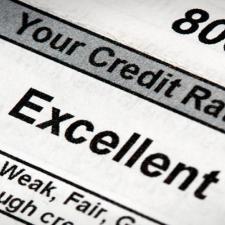Why You Should Regularly Check Your Credit Rating And How To Make It Better
Your credit score is important. It will affect what loans and credit cards you have access to, the amounts that you can borrow and the interest rate that lenders will charge you. Too low, and your ability to get credit will suffer. Those with the best credit ratings will have easy access to credit because they have demonstrated financial responsibility in the past and so lenders will view them as lower risks.
In extreme circumstances, having a poor credit record will affect your ability to not just access loans but could prevent you getting new utility accounts or phone contracts without putting up some form of security or making payments in advance.
Making sure that the information on your credit rating is accurate and reflects your current circumstances is important. So, too, is interpreting your credit rating so that you can make improvements in the areas which are preventing you getting access to the lending that you need.
 How to get hold of your credit record
How to get hold of your credit record
There are three main credit reference agencies in the UK: Experian, Equifax and CallCredit. Between them, they hold data on every borrower in the country and this information is used by the banks and other lenders when assessing people’s applications for credit: cards, loans, mobile phone contracts, mortgages and so on.
You can apply to any one or all of the credit reference agencies for a copy of your credit record. You will be charged a small fee – usually £2 or £3 – or, alternatively, you can take out a membership which will give you online access to the record at any time. This may cost up to £15 a year and the reference agencies will usually offer a free 30-day trial for the service.
There are other services – notably noddle.co.uk – which give free access to credit records. Noddle currently only contains information held by CallCredit.
How to read your report
Information from a variety of sources is included on a credit record: your addresses stretching back 10 or more years, a history of payments on each credit account stretching back up to six years, records of any defaults that may be registered against you, details of county court judgements (CCJs) stretching back six years and a full breakdown of your outstanding debts including balances and payments histories (whether payments were on time or overdue).
When you’re turned down with an application – the decision was not made by the credit reference agency, but by the lender. However, the lender will often suggest that you look at your record to see what the reason might have been.
If you use an online service, there may be a credit score applied to your record. This is a number between 300 and 900 and will reflect whether you are viewed as a poor, fair, good or excellent risk when a lender considers your application.
How to make things better
The first thing you should do when you get hold of your record is to check that it is up to date and that there are no mistakes.
Check that:
- Your address is correct and that it shows you are on the electoral roll
- Your previous addresses are correct along with the dates that you moved
- Make sure that you are not linked financially with somebody that you don’t or no longer have a relationship with
- Make sure that there isn’t anybody registered at your address who doesn’t actually live there.
- Ensure that all your payment histories are accurate.
Improving your rating
Look at where there are areas that you could improve and target them:
- If you can, try to settle accounts where the outstanding balances are small. This will have an immediate effect on your credit score
- Commit to making all your repayments on time
- If there are a lot of searches (the referrals to your credit record made when you apply for credit) appearing on your record, then try to limit new applications for a while. These searches are viewed negatively by lenders if there are a lot of them in a short space of time
- When you have to apply for credit, try to work out what you are likely to be accepted for. You can do this by using the pre-eligibility checks that some lenders and comparison sites offer which do not show up as searches on your record.
- If you’ve got credit cards that you don’t use any more, close them
- If you’ve got a number of addresses registered over a short period, try to stay at the same address for a while. Lenders will view you as a lower risk when you do this
- Apply for credit builder or credit repair cards. You’re more likely to be accepted for these and, if used responsibly, they can repair a credit record relatively quickly. If you do get one of these, try to use it for paying for essential things that you have budgeted for anyway and then make more than the minimum repayment each month
- Stop going overdrawn with the bank. Many people don’t realise that an overdraft is a form of credit. If you don’t have an authorised one and regularly go overdrawn, this can have a huge impact on your credit record. Even authorised ones can negatively affect you, particularly if you are constantly in the red with your bank.
Keep checking
Finally, make sure you continue to check your credit file to ensure that you’re on track to repairing it. Just a few simple mistakes on it will have an effect on your ability to get loans or credit cards and so you’ll want to pick up on these quickly. Taking out a subscription with the agencies can be money well spent.
Article provided by Mike James, an independent content writer in the finance industry – working together with UK based finance broker Solution Loans, who were consulted over this post.

